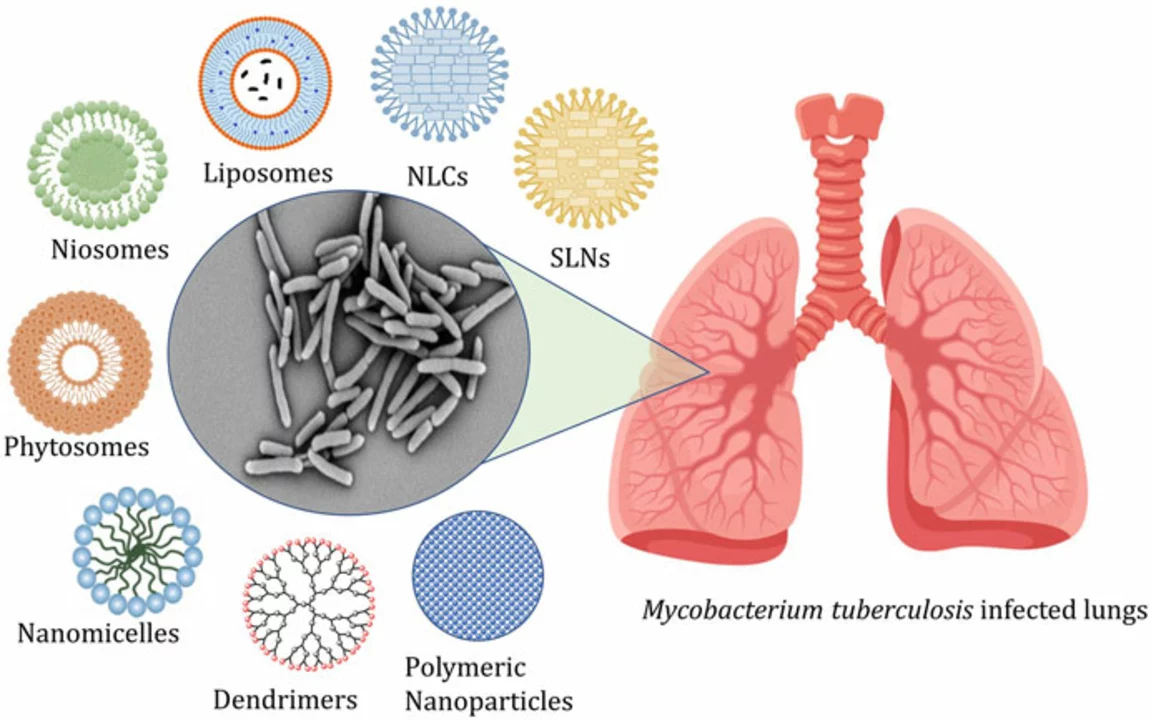Want clear, usable updates from medical research without the jargon? This category pulls together short, practical posts on real studies and what they mean for patients and caregivers. You’ll find pieces on diabetes breakthroughs, drugs used for resistant infections, and surprising new uses for older medicines. Read with a purpose—each article explains why the finding matters and what to watch for next.
Diabetes research keeps moving fast. Recent work focuses on better glucose monitoring, safer long‑acting insulin options, and therapies that protect or replace insulin‑making beta cells. That matters because better monitoring cuts hypoglycemia risk, and preserving beta cells can slow disease progression. If you read a study claiming a ‘cure,’ check whether it’s early‑stage or done in animals—human trials are the real test.
Multidrug‑resistant tuberculosis (MDR‑TB) is another area where drugs like cycloserine matter. Cycloserine works differently than first‑line TB meds, so it’s useful when bacteria resist standard drugs. Clinicians usually combine it with other agents to prevent further resistance. Watch for notes on side effects—cycloserine can cause mood changes or neurological symptoms, so mental‑state monitoring and dose adjustments are common in reports.
Drug repurposing turns old medicines into new tools. Ticlopidine, once a common antiplatelet, is under study for unexpected roles—some labs are testing it in models of neurodegenerative disease and certain cancers. Repurposing speeds things up because safety data already exist, but effectiveness still needs properly controlled human trials before clinical use changes.
When you skim a study, check these basics: sample size (bigger is better), study type (randomized clinical trial > observational), trial phase (Phase 3 beats Phase 1 for readiness), and the primary endpoint (what the trial actually measured). Also look for conflict of interest statements—industry funding doesn’t invalidate results, but it’s context you should know.
Practical tip: if a study reports percentage improvement, find the absolute numbers too. Saying “50% better” sounds big, but if the risk dropped from 2% to 1%, that’s a 1‑point absolute change. That detail helps you judge real-world value.
Use this category as a filter. I summarize the key points, explain possible patient impact, and flag next steps researchers need to take. Want deeper reading? Each post links to the original paper so you can check methods and data yourself. If you have a specific condition, talk to your clinician before changing treatment based on a single study—research informs options, it doesn’t replace medical advice.
Follow these updates and you’ll stay informed about meaningful progress—new devices, smarter drug combos, and promising repurposed meds—without getting lost in technical detail.

Explore how ropinirole affects daytime sleepiness in Parkinson's patients, review key studies, compare alternatives, and learn practical tips to stay alert.

Explore how fibromyalgia and autoimmune disorders intersect, covering shared symptoms, immune mechanisms, diagnosis tips, treatment overlap, and the latest research findings.

As a blogger, I cannot stress enough the importance of diabetes research and advancements. These continuous efforts not only help in understanding this complex disease better, but also pave the way for newer, more effective treatment options. The ultimate goal is to improve the quality of life for millions of people affected by diabetes worldwide. Additionally, this research can potentially lead to a cure or prevention strategies, saving countless lives in the future. I truly believe that supporting diabetes research and advancements is our collective responsibility, as it can bring about significant positive change in the lives of those affected.

In my latest blog post, I discussed the crucial role of cycloserine in managing multidrug-resistant tuberculosis (MDR-TB). Cycloserine, an antibiotic, has become increasingly important in the treatment of MDR-TB, especially when other first-line medications are ineffective. This is because it targets the bacteria causing TB in a different way, thus overcoming resistance. However, it's essential to use cycloserine in combination with other antibiotics to ensure maximum effectiveness and minimize the risk of further resistance. Overall, cycloserine plays a vital role in the fight against MDR-TB, and ongoing research is crucial to optimize its use and develop new treatments.

I recently came across some fascinating new research on the potential uses of Ticlopidine, a medication traditionally prescribed to prevent blood clots. Scientists are now exploring its potential in treating other medical conditions, such as Parkinson's disease and certain types of cancer. It's exciting to see how researchers are constantly pushing the boundaries of medical knowledge and discovering unexpected applications for existing drugs. I'll be keeping a close eye on the progress of these studies and will keep you all updated on any significant developments. Who knows, Ticlopidine could soon play a crucial role in the treatment of a whole new range of diseases!
Curious which over-the-counter options stack up against amoxicillin? This article explores 10 OTC antibiotics or drugstore products with similar effects, comparing their efficacy and use. You’ll find interesting facts, tips on choosing the right alternative, and practical stats, all structured for clarity. Get ready for an in-depth, honest look at how drugstore meds measure up to this popular prescription antibiotic. From hidden risks to smart ways to shop, this guide covers what you need before making a decision.
Cost is the top reason people skip doses or don't fill prescriptions. Learn how high drug prices hurt health, why it's not your fault, and what real help is available-from patient programs to Medicare changes and free discount tools.
Learn how to space probiotics and antibiotics correctly to prevent diarrhea and protect your gut. Discover the best strains, doses, and timing rules backed by science.
Explore six trusted online pharmacies as alternatives to CanadaCloudPharmacy in 2024. These Canadian pharmacies offer a wide selection of prescription and over-the-counter medications, each with unique strengths such as competitive pricing, secure ordering, and vast medication ranges. Discover the pros and cons of each platform to find the best option for your healthcare needs.
Learn how the FDA ensures generic drugs are safe, effective, and affordable. Understand the approval process, why generics cost less, and what you need to know as a patient.